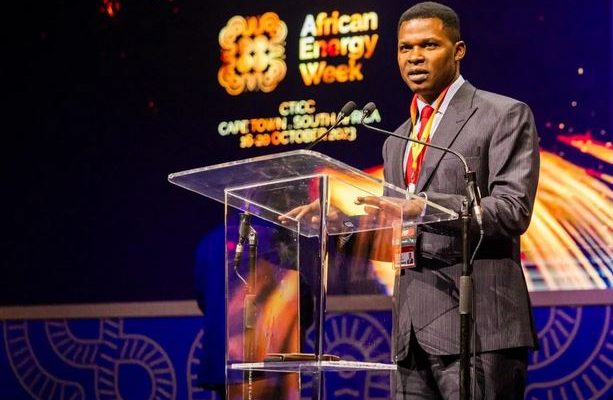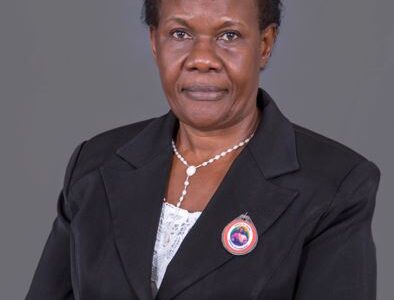
As we embark upon the 28th session of the Conference of the Parties (COP28) to the UN Framework Convention on Climate Change (UNFCCC), as the executive chairman of Africa’s preeminent advocacy group working toward a just energy transition for our continent, I find myself compelled to deliver some clarity on where we stand at this place and time amidst humanity’s quest to achieve net-zero.
Past conferences bore witness to numerous claims and pledges. While some were plausible and their initiatives feasible, others remain divorced from the objective reality at ground level.
Currently, the African Energy Chamber (AEC) is dismayed to see what appears to be an increasing disregard for Africa’s vast, untapped hydrocarbon resources and their potential to serve as a crucial link between the global energy crisis of today and the emissions-free yet economically prosperous tomorrow we’re all supposedly striving for.
I am also concerned by the pervasive indifference toward certain facts and relevant progress indicators that has taken hold throughout the international community most closely engaged with halting and reversing the adverse effects of climate change and improving the lives of people in developing nations across the globe.
Past Pledges Assessed
Building on the structures erected by the Montreal Protocol of 1987, the UNFCCC of 1992, and the Kyoto Protocol of 2005, the Paris Agreement, adopted by 196 parties during COP21 in December 2015, defined otherwise nebulous goals with hard numbers against which participating nations could measure their progress.
By committing to the targets of capping global warming at 1.5 degrees Celsius above pre-industrial temperatures by the end of the century, a greenhouse gas emissions peak before 2025, and a 43% reduction by 2030, participants signed on to a legally binding agreement meant to curb the flooding, droughts, heatwaves, and other disastrous weather events climate scientists predict would both worsen and become more frequent if current emission level increases continued unabated.
Organizations like the Council on Foreign Relations argued that the terms of the Paris Agreement are inadequate for producing the kinds of results they were designed to and were so even at the time of their adoption — a factor that led many signatories to submit stronger pledges in the years that followed in an effort to come closer to the initial targets. Despite some revisions doubling their original commitments, as did President Joe Biden’s update of the United States’ pledge, in the end, the measurable effects of the Paris Agreement will likely fall short of its goal.
In addition to the Global Methane Pledge and the Declaration on Forests and Land Use, which call for a 30% reduction in methane emissions and a halt to deforestation by 2030, the Glasgow Climate Pact of 2021 was the main outcome of COP26 and the impetus behind many of the strengthened Paris Agreement pledges. The pact outlines provisions for reducing greenhouse gas emissions including a phasedown of unabated coal use, an increase in renewable energy investments, and a “phase-out of inefficient fossil fuel subsidies.” (Environmentalists were not the only ones with grievances about COP26: the pledges listed above, particularly the commitment to phase out fossil fuel subsidies, made securing investment in African exploration and production projects significantly more challenging.)
A year later, COP27 proved more of a disappointment for environmental activists as they perceived their issues to be overshadowed by Russia’s aggression against Ukraine, the sabotage of the Nord Stream pipelines, and the effects the fallout from these events has had on the global energy industry. These activists regard COP27 as no more than a rehash of the points covered by the previous year’s conference, with the added insult of having admitted advocates for a just energy transition in Africa.
Often not cited among COP27 developments are the launch of the Africa Carbon Markets Initiative (ACMI) and the Africa Just and Affordable Energy Transition Initiative (AJAETI), which aim to develop a bustling voluntary carbon market in Africa while facilitating the expansion of clean energy access and the eventual transition to energy fully sourced from renewables.
The Common Denominator
Pushback against the slim headway achieved through the efforts of the African energy industry at COP27 has taken the form of calls for commitment to even more severe phaseouts of fossil fuels.
Founded in the Marshall Islands, the aptly named High Ambition Coalition, which counts numerous other island states and several European nations as members, recently called for an end to all international public financing for fossil fuel development and generation, even going so far as to discount the role of abatement technologies like carbon capture and storage in their statement.
The United Kingdom and the European Union have also reportedly joined in the chorus of voices demanding a ban against developed nations providing subsidies for fossil fuels.
Other expectations for this year’s conference include calls for member states to formally commit to triple their renewable energy capacity and double their energy efficiency across the board by 2030.
The thread tying all these pledges together, with respect to our work at the AEC, is that none of them bode very well for any future success stories from the African energy economy.
If Truth Be Told
At the AEC, we recognize oil and gas as finite resources. We agree that climate change is a genuine phenomenon with detrimental repercussions, and we acknowledge that human activity is partially, if not mainly, responsible for its manifestation.
However, in this era of near rabid demand for total upheaval in the global energy industry, we feel compelled to present an alternate view.
As environmental groups like Just Stop Oil are seemingly upping the frequency of their protests, defacing monuments, vandalizing great works of art, and blocking roadways — engaging in increasingly violent clashes with motorists and the police — we must ask, “What is your solution?”
Our insinuation, of course, is that they do not have one.
After all, even Greta Thunberg, arguably the most visible climate activist in recent memory, conceded early on in her rise to fame that the role of her movement is merely to demand solutions to the alleged climate crisis rather than offer any of its own.
While we are many years removed from former U.S. Vice President Al Gore’s warnings of an ice-free north pole, but only four years into U.S. Representative Alexandria Ocasio-Cortez’s countdown to the end of the world, it is a fair guess that the average citizens of this planet are experiencing an amount of climate fatigue inflicted upon them by their leaders.
It is well past time to consider some additional inconvenient truths.
The promise of universal clean energy is real, but the technology that would provide it is not yet available.
As exemplified by Germany’s dismantling of a windfarm to make way for the expansion of the Garzweiler coal mine earlier this year and Prime Minister Rishi Sunak’s recent revisions of the UK’s net zero pledge, when faced with reality, developed countries are quick to compromise. The time to experiment with, and eventually perfect, alternative energy sources is a luxury afforded to them by their financial stature.
Things are also not as bad as they seem, or as bad as the 24-hour news cycle would lead you to believe.
In the U.S., thanks to improvements in energy efficiency technology, waste and soil management practices, and the carbon intensity of energy fuel choices, greenhouse gas emissions have been on the decline since 1990.
Around the world, despite a four-fold increase in population, there’s been a 92% drop in fatalities from natural disasters over the last century.
While the electrical grids of the industrialized nations may still lack the capacity to adequately supply all-electric commuter populations, and cities may want to reconsider wholesale bans on gas appliances, globally, a significantly more climate-friendly future really isn’t that far off.
In the meantime, the world will still need oil and gas to power its way there, and Africa is primed to deliver it. The hydrocarbon-bearing nations on our continent deserve to enjoy the same benefits the developed nations reaped when they extracted and monetized the fossil fuels beneath their soil and off their shores. African states also need their fossil fuels, natural gas in particular, to help alleviate the debilitating energy poverty impacting more than 600 million people.
The people of Africa have waited long enough for the advantages and opportunities of modernization. Since the AEC’s inception, and always with an eye toward an eventual energy transition, we have offered Africa guidance on negotiating this process. Now that we are on the cusp of achieving our goals, we ask that the international community stand with us as we offer our support in this global effort.
The writer, NJ Ayuk is the Executive Chairman, African Energy Chamber. Twitter: @nj_ayuk









